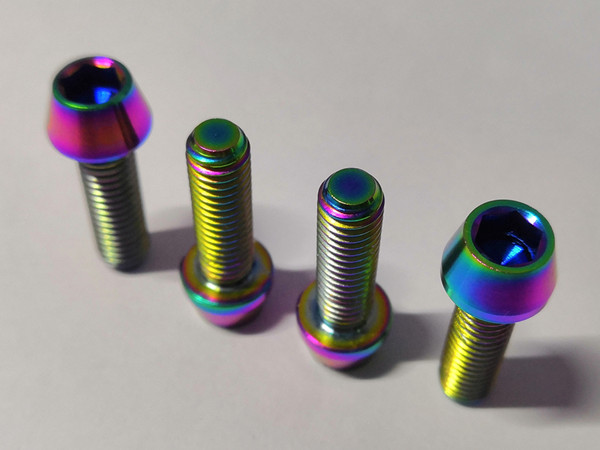Reasons for Failure of Titanium Screw Sliding Teeth and Fracture
1) assembly twist-pull fracture. The twist-pull fracture is characterized by obvious necking and elongation at the fracture site. The common reasons are that the friction coefficient of the joint surface is too small; the applied torque is too large when tightening or pre-tightening; the sleeve and thread are not axes when applying the torque; the speed is too fast when applying the torque; the performance strength of the part itself is not enough; and the perpendicularity of the fastening surface and the thread center line is too poor.
2) Thread is twisted by shearing force. The common causes of thread breaking by shearing force are that the thread is stuck in the process of tightening, for example: thread deformation, inconsistent tooth shapes of interconnection, welding slag lamp condition of thread; the cross-section of screw-in bolt is jacked, such as the effective thread depth of blind nut. Not enough.
3) Fracture of stress concentration area after use. Fracture in the stress concentration area is often found in the head of bolt and the over-right angle between the head and the screw. The main reason is that the over-right angle between the head and the screw is too small, and the plastic streamline of the head is defective during cold upsetting. The verticality of the connecting surface and the bolt is out of tolerance.
4) Fatigue fracture. Fatigue fracture is the main fracture in the process of bolt connection. Common reasons are: insufficient pre-tightening force; excessive attenuation of clamping force; unqualified bolt size and performance; the coordination of parts, assembly environment and service conditions can not meet the design requirements.
5) Delayed fracture. Hydrogen embrittlement is the common cause of delayed fracture of titanium screw. Hydrogen embrittlement is the trace hydrogen that enters the steel in the production process (such as electroplating, welding), which leads to brittleness or even cracking of the material under the action of internal residual or additional stress. Common fasteners prone to hydrogen embrittlement are self-tapping nails, elastic washers, and bolts above grade one treated by electroplating.

